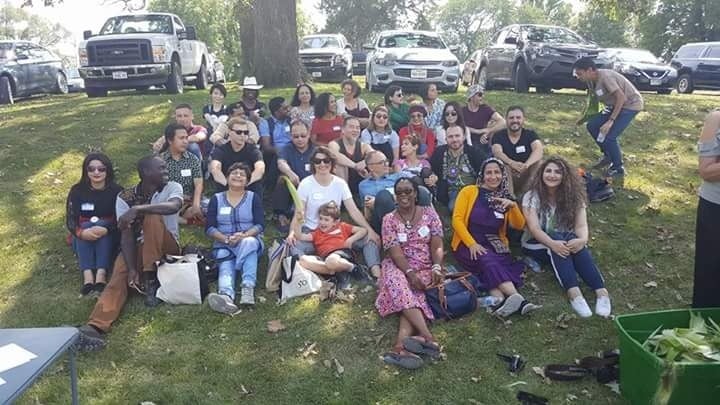
Memories of two writing residency programmes in the US and returning with a secret wish to build a city like Iowa in Pakistan

I came back to my homeland fifteen days ago after finishing an honorary fellowship programme at the University of Iowa and a writers’ residency programme in Pittsburgh, Pennsylvania.
Somehow, on coming back, my interaction with people in Pakistan reminded me of the situation the protagonist in Tayyeb Salih’s novel, Season of Migration to the North, went through. I experienced the same kind of interrogation and inquisition about the people in the US as Salih’s protagonist. I found the questions about the living style, the religious practices, freedom to choose and declare one’s sexual orientation and eating habits pretty clichèd. Nobody asked me about contemporary literature in the US, the reading habits, the demonstrations and manifestation of political correctness.
The first programme I’ve mentioned is called the International Writing Program which hosts more than thirty-five writers every year. 2017 was the 50th anniversary of the programme, and hence the celebrations involved inviting more than forty-three writers. My nomination for the programme came to me as a pleasant surprise. I was the third Pakistani woman writer to have participated in the programme. However, eight male writers including Waqas Ahmad Khwaja, Bilal Tanweer and Harris Khalique have participated in the previous years.
A writer from Thailand welcomed me on the Cedar Rapids airport and drove me to the Iowa House Hotel where I had to stay with my fellow writers. I knew Iowa already through movies like Bridges of Madison County, What’s Eating Gilbert Grape and Field of Dreams. Iowa is a mid-western state with lots of corn and soybean. It is also known for its world-famous Writer’s Workshop that has produced many important writers like Flannery O’Connor, Denis Johnson, Raymond Carver, Donald Justice, Paul Engle and many more. Paul Engle along with his wife Neigh Engle started the International Writing Program.
Iowa is called a University Town because whenever you go, whenever you go, you will end up seeing and meeting students of the University of Iowa. One more interesting fact about the University of Iowa is that it was the first US State University to admit women on an equal basis with the men in 1855.
Iowa holds the status of a designated UNESCO City of Literature and I could see the reason. Every Friday we used to gather at the Shambaugh House for a reading and every Sunday we used to gather at Prairie Lights Bookstore for another reading. Readers included IWP Fellows along with many local and visiting writers. Friday afternoons were allocated for panel discussions which took place in the Iowa Public Library.
Despite bad weather and awkward hours, I saw people coming to the library just to hear the writers and participants share their views. These weekly events were an unusual thing for a person like me who had little experience of literary festivals (the LLF and KLF once or twice a year). I had the privilege to share my work not only at the scheduled Shambaugh House reading but also during the Iowa City Book Festival. I was honoured to share my views in a panel, titled ‘Emancipating Bodies: Encountering Taboos’, with writers from Myanmar, Argentina, India and Guyana.
Other than radio programmes and interviews, the international writers were invited to different places by community members including traditional barns, farmhouses and community reunions. The reason behind this was none other than the community’s love for literature and arts. I along with my fellow participants walked around and explored the city without any fear.
During my stay, the United States pulled itself out of UNESCO. I witnessed the protest on an individual and organised level against the President’s decision and I also witnessed that no protestor was abducted or arrested for their independent viewpoint.
We used to gather in a ‘common room’ where we discussed matters ranging from political metaphors to Instagram poetry. Despite different cultures, languages and difference of opinions, those ‘common room’ discussions left a lasting impact in our memories.
The 2017 cohort of IWP consisted of very diverse writers, musicians, filmmakers and wonderful multi-taskers. I wish we can build a city like Iowa in Pakistan that loves and breathes literature. I say that while dreaming secretly about Lahore’s literary aura.